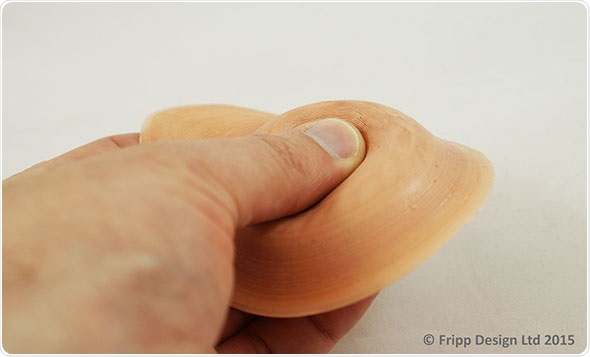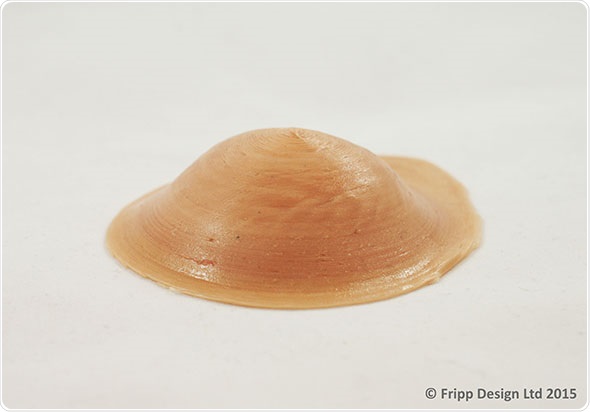May 26 2015
Sheffield Based Industrial and Product Design consultancy, Fripp Design and Research, announce a breakthrough in the development of their 3D Print technology; Picsima.
Picsima is a unique 3D Print Technology capable of creating three dimensional geometry from Room Temperature Vulcanising (RTV) medical grade Silicone. Although the technology is still in its development stage, the company have announced their first attempt at 3D Printing Silicone breast implants.

Tom Fripp, one of the founders and inventors of Picsima commented:
For some time now we have been asked about the feasibility of 3D Printing Breast implants. Currently the choices of silicone breast implants for women, having to undergo reconstructive surgery, is very limited.
This is not good for women for a number of reasons, they have to spend a relatively long time in surgery under anaesthetic because of the time the surgeon needs to do the reconstruction and the resultant reconstruction often does not reflect the desired look a women wants. We wanted to explore how a custom 3D Printed silicone implant could improve this situation.
 With the introduction of low cost scanning technologies, it is simple for a surgeon to obtain a digital representation of a woman’s breast. With the Picsima technology’s ability to 3D Print silicone without the need for support material, it will be possible to take that data and 3D Print a silicone breast implant directly, which will dramatically reduce the time a woman would spend under surgery and, equally as important, allow for a better reconstruction of the breast.
With the introduction of low cost scanning technologies, it is simple for a surgeon to obtain a digital representation of a woman’s breast. With the Picsima technology’s ability to 3D Print silicone without the need for support material, it will be possible to take that data and 3D Print a silicone breast implant directly, which will dramatically reduce the time a woman would spend under surgery and, equally as important, allow for a better reconstruction of the breast.
This is still in development, as is Picsima, but this is a significant step forward because Picsima is the only polymer based 3D Print technology using materials already approved for medical use
Source:
Fripp Design and Research